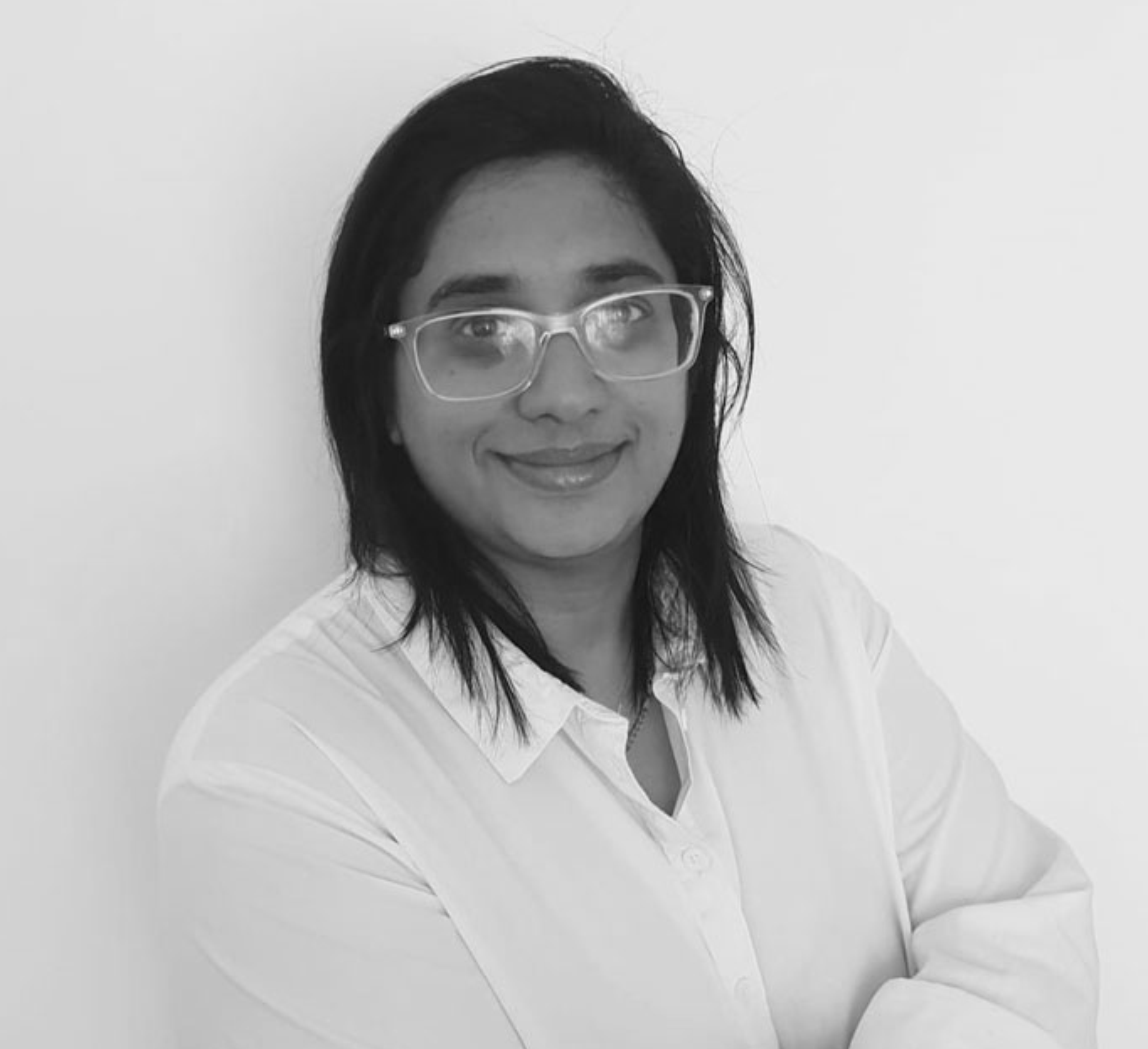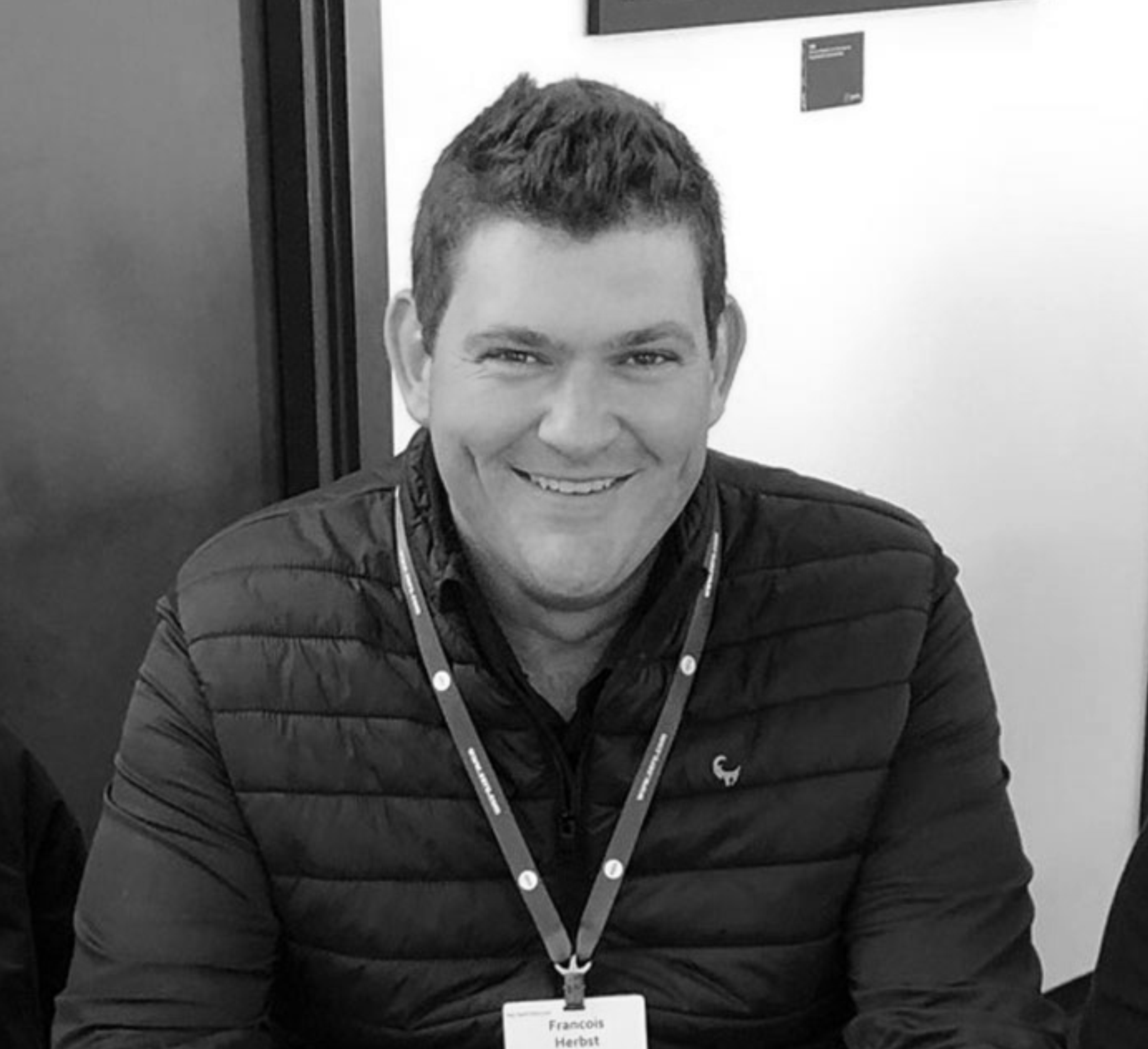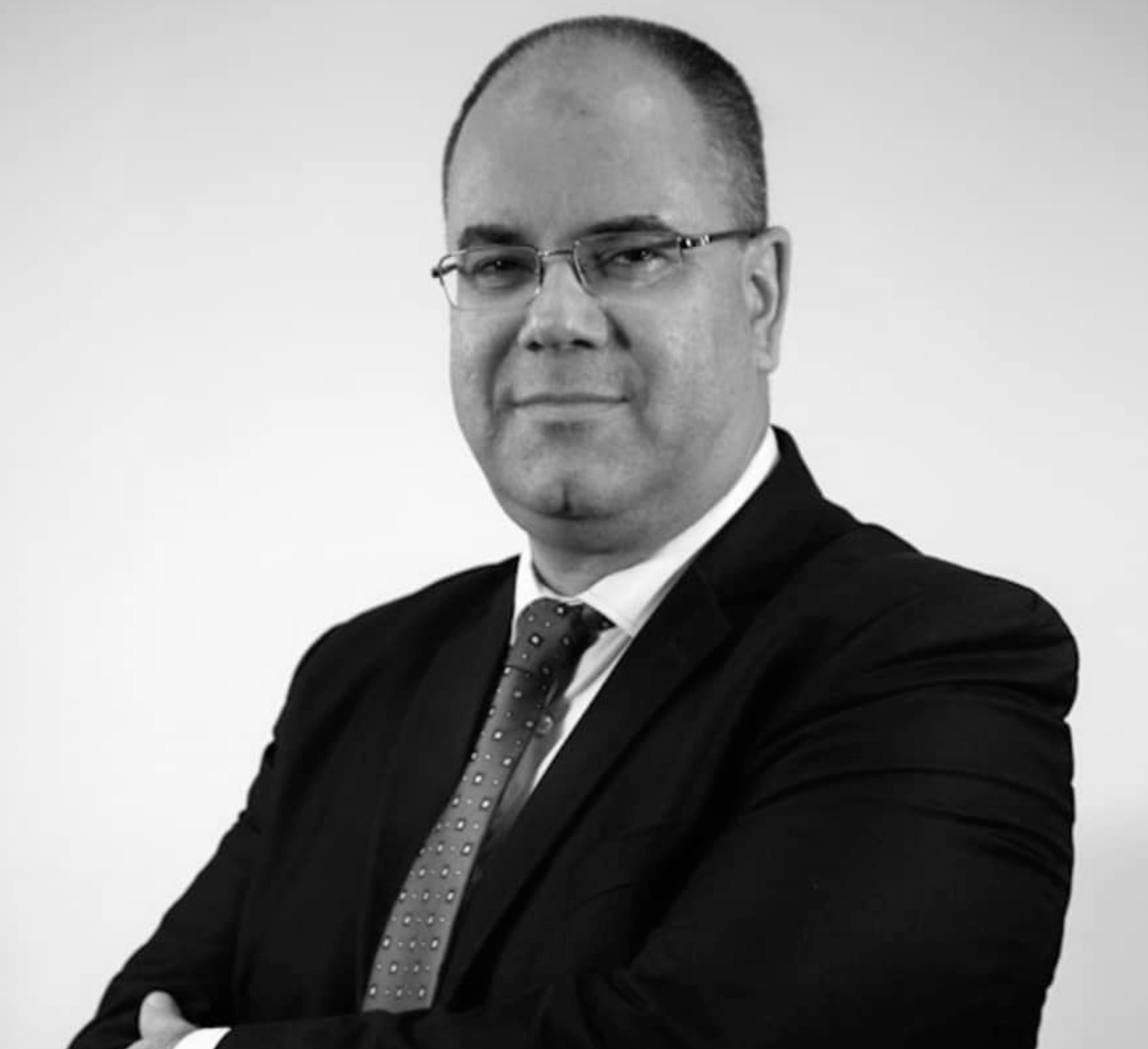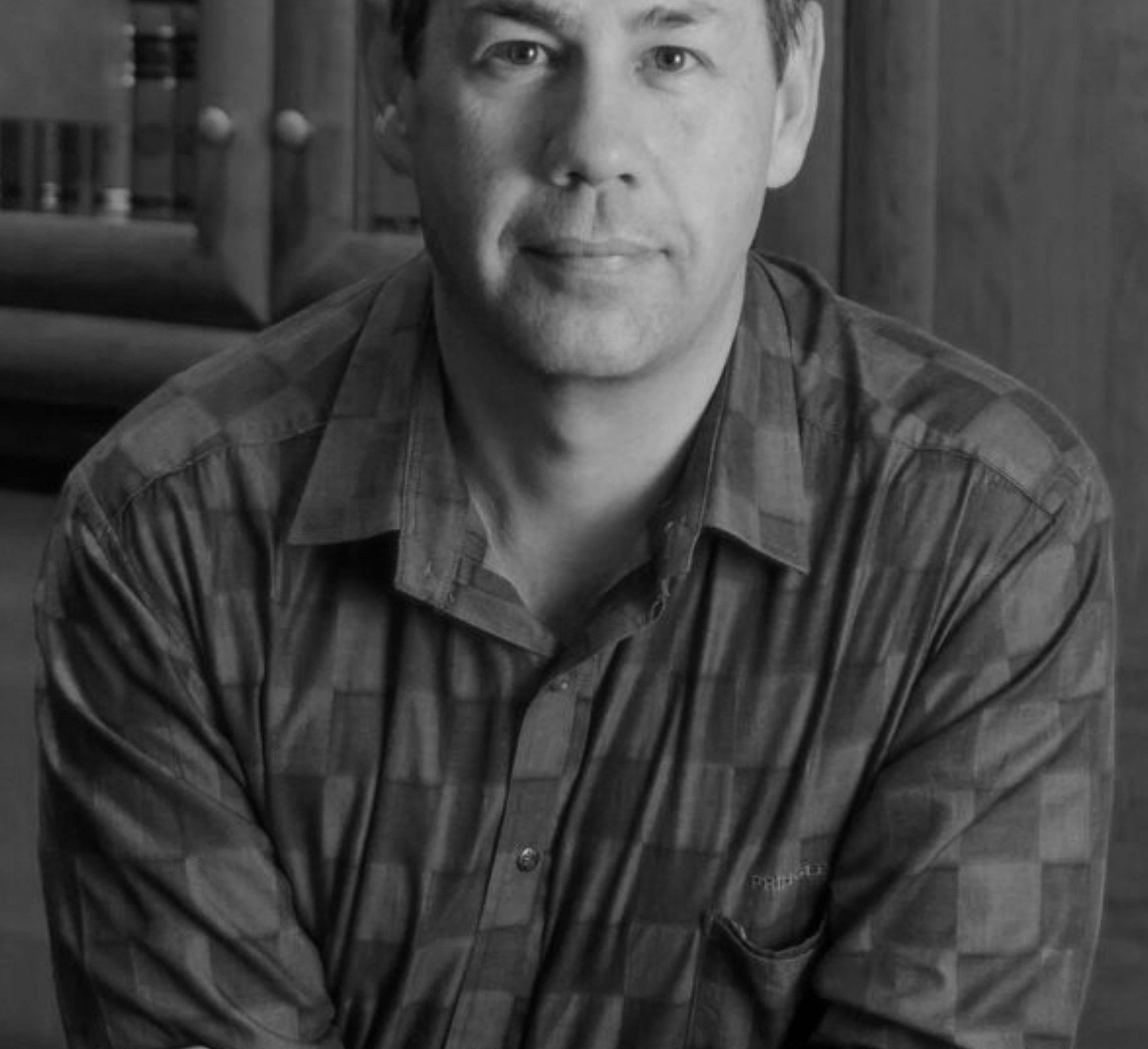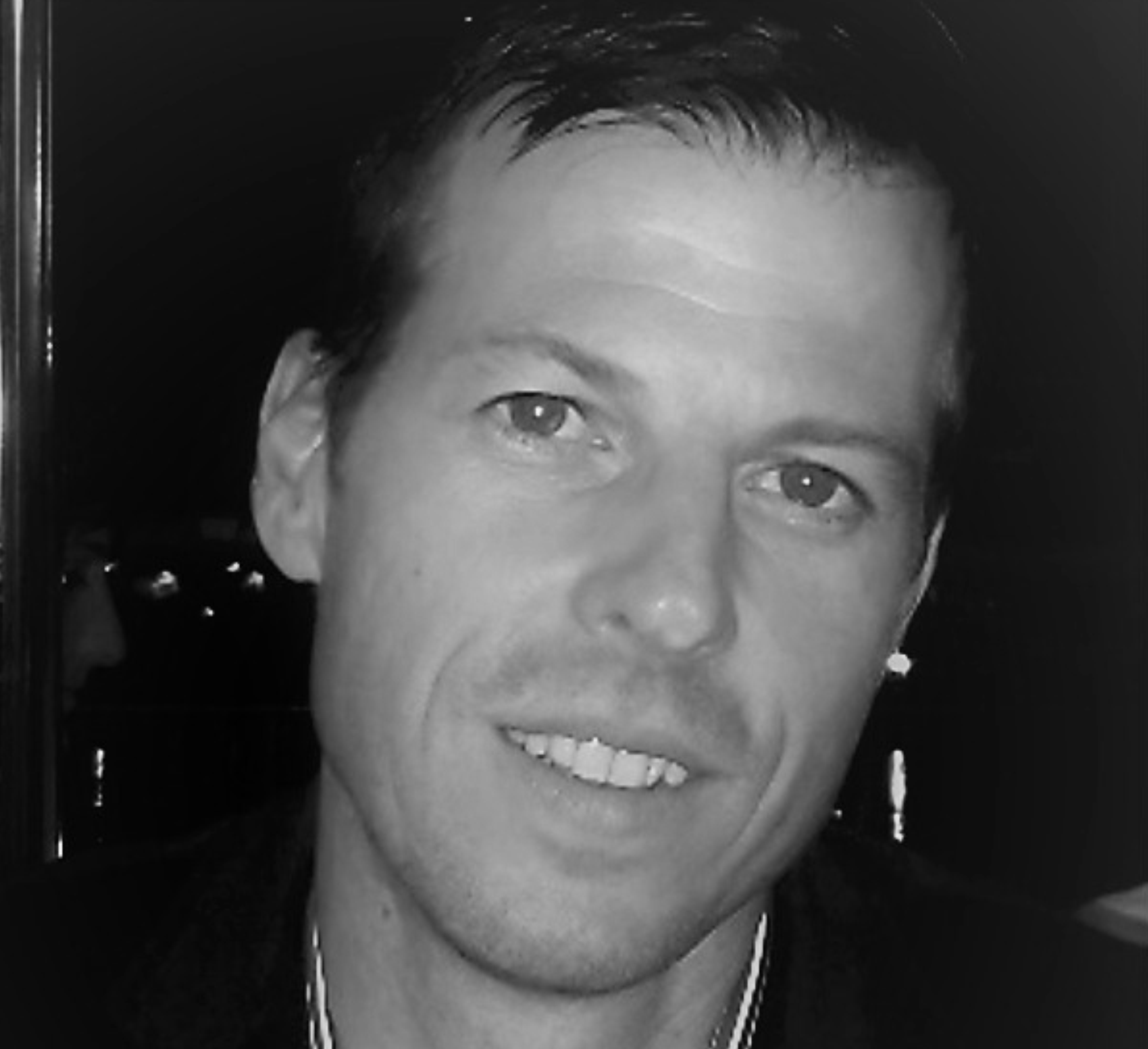109: Merusha Govender
‘I knew I wanted to be a CA before I even knew what a CA did.’
Financial Director, entrepreneur and author, Merusha Govender, is one of the shareholders at DDS Group blazing a trail across 15 African countries for this specialist dispense and refrigeration service provider based in South Africa.

CIARAN RYAN: Today’s podcast is sponsored by Draftworx, which provides automated drafting and working paper financial software to more than 8000 accounting and auditing firms and corporations. CFO Talks is a brand of the South African Institute of Business Accountants. What a pleasure it is to welcome Merusha Govender, who is Group Financial Director for the DDS Group. That’s a group of 15 companies providing services to the beverage and refrigeration equipment industry. Merusha has been there since 2014 and has been intimately involved in the group’s expansion to new territory, such as Mauritius, Malawi and Mozambique. Now she’s also an author, and we’ll get into that in a minute and she decided to give up her car, so she’s now living without a car, it will be interesting to find out what’s the reason behind that. Merusha is a CA with an MBA, and she has a keen understanding of what it takes to run complex organisations and guide them through the challenges of expansion, particularly in new countries. First of all, welcome Merusha, where are you talking to us from today?
MERUSHA GOVENDER: Thank you so much, I am based in Greenstone Hill, Johannesburg.
CIARAN RYAN: Tell us a little bit about the DDS Group and what it does, there’s a little bit of information there on the internet, but I’d like to find out from you, what is the basic business of DDS Group?
MERUSHA GOVENDER: As you mentioned, DDS Group is a group of 15 entities, of which we are based in 13 countries in Africa. We basically maintain, manage and track beverage and cooler assets for our clients. In South Africa our biggest client is AB InBev, so we’re responsible for all their draught equipment. So when you go into a pub and you order a draught beer, we go and install that equipment and we clean those lines every three weeks. Another service we offer is to Unilever, which is for the Ola ice cream fridges, so when you go into Pick n Pay and buy and ice cream, it comes in a cooler that we manage for our clients. Another product we recently added to our sanitising division is fogging off spaces. So we use a product from a company called [unclear] and we fog office spaces, pubs, and it has surface protection for up to 30 days. So as we go along, we grow our products for our current clients.
CIARAN RYAN: And how’s business been during the lockdown? Has it affected your sales and your profits? Give us an idea of how the lockdown has been impacting the business.
MERUSHA GOVENDER: I don’t think there’s any business in South Africa that wasn’t impacted. For us being in the alcohol industry, over locked down and with the alcohol ban we lost about 80% of our revenue. But the active exco shareholders made a decision right at the start, and what we decided we were going to do is there was two goals, the first one was making sure that our people were able to feed their families and have shelter. The second aim was to make sure that we had a business to come back to, which meant we moved our focus off profits, and we focused on cashflow, and that helped us a lot to get through it.
CIARAN RYAN: 80% drop in business, did I hear you right?
MERUSHA GOVENDER: Yes, correct. The majority of our income does come from the alcohol industry because we go in and we clean draught equipment. For us, the positive side was we have lots of businesses in Africa, so when South Africa had an alcohol ban, other countries like Nigeria didn’t. So diversification definitely helped.
CIARAN RYAN: All right. So you diversified as a result of the lockdown, did you?
MERUSHA GOVENDER: We did open our fogging business to sanitise, but we just expanded our products to ensure that our current staff had more work to keep the doors open.
CIARAN RYAN: Has there been a pickup in business since the alcohol ban has been lifted and was re-imposed, I think it was in January and it’s now been lifted again, and it’s not a full lift, but people can go to pubs and they can drink alcohol in restaurants again. So have you seen a pickup in business since that happened?
MERUSHA GOVENDER: Yes, definitely. We are more or less back on schedule, we do a three-week clean at every pub that basically has an SAB draught line. It has but the aftermath of all the businesses that were closed down due to Covid, we believe 20% of the pub bases have been closed. So it’s not business as usual still.
CIARAN RYAN: Do you think those businesses have closed permanently or are they likely to open at some point in the future again?
MERUSHA GOVENDER: I think pubs in good locations, even if they’ve been closed by the current owner, someone’s going to come and take the opportunity, especially if it’s a good location and open up another.
‘We literally grew the business overnight by 50% by merging.’
CIARAN RYAN: Can you give us a sense of the size of the business in terms of revenue, growth and profits, and also the geographical mix. Is South Africa the biggest part of your business or outside South Africa?
MERUSHA GOVENDER: South Africa is the biggest part of our business. We employ about 400 people across the African continent. I would say that our revenue in the South African geographic is about R200 million. Growth wise, when I started at DDS probably six years ago, there were four entities in the business. Two years later, we did a merger with one of our current competitors and we literally grew the business overnight by 50% by merging. Since 2016, we’ve opened up in Namibia, Lesotho, Zambia and Ethiopia. I would say a year-on-year growth of 30%, we do consider ourselves a medium-sized business in essence.
CIARAN RYAN: Where is the company headquartered and who are the main shareholders?
MERUSHA GOVENDER: We have branches in every major city in South Africa. We have a number of depots as well in the outlying areas. In our African entity, every country has a branch in the country itself. In terms of location, support services are still run in Johannesburg, so basically finance, HR and we support the entire group. In terms of shareholders, in August 2020 PAPE Fund 3, which is a private equity fund, bought 45% of our business. We have a small staff shareholding but the other 45% of the business is owned by myself and four of my business partners. All five of us are basically involved in the business, we run the day-to-day business. Three of them are actually founders of the business.
And how long have we all based in different parts of
CIARAN RYAN: How long has the business been going?
MERUSHA GOVENDER: Twenty-five years.
CIARAN RYAN: Sorry, I interrupted you there, you were saying that you’re all based in different countries or different cities?
MERUSHA GOVENDER: Different cities. There are five of us, I’m based in Johannesburg, one of my business partners is based in KZN, another in George, another in Cape Town, and our CEO is based in the UK.
CIARAN RYAN: Okay, so you’re quite international. Now tell us about your career as a writer. You’ve written some books for children about finance and accounting, which I happened to look at a few chapters the other evening that you sent them through to me, which I thank you very much for. It’s got very nice pictures to go with it, but I guess the idea is to explain to children the essence of where does money come from and how do you earn it, and it’s not something that your dad just gives you because you ask. I think you’ve gone into some detail there to try and explain to children that money is something that you work for. What motivated you to do that?
MERUSHA GOVENDER: I consider myself a part-time blogger. I write articles on LinkedIn based on my experience and because I’m in the finance field, most of the articles speak about finance topics. The book itself, I’m quite passionate about educating people about finance and sharing my experiences. I think in South Africa we have a real problem with the level of financial literacy. Our schools aren’t adapted to be able to educate our children properly on finances, and if parents aren’t financially literate, schools, aren’t taking control, we have a big problem here. So the idea of the book is to give parents a way to introduce concepts to their kids about money. But in essence, it’s a starting point, it’s to open up the conversations in homes about money. People, families still feel like it’s a taboo subject. I also believe in good habits and you have to instil it early in life, and good money habits have to be instilled. So that’s the point of the book, it’s a stepping stone, it’s a way that parents can introduce the subject.
CIARAN RYAN: How do you market the book? Is it available on a website, tell us how you get hold of it, and what is it called?
MERUSHA GOVENDER: I just sent you a few chapters on it, basically it’s one 60-page picture book. It’s called the Money Adventures of Aunty Marshy and Ty. The story is based on myself and a family friend’s kid, and I explain to him money matters and we go through these adventures together.
It is available on Amazon as a PDF, most people can just drop me a LinkedIn and order that way.
CIARAN RYAN: Another interesting thing that you did was you got rid of a car, the car that you were driving. You wrote an article about that and you said you didn’t really do it to save money, you did it for other reasons. Just explain that, what motivated that decision?
MERUSHA GOVENDER: It wasn’t really a material-driven idea, the idea was to realign myself to reduce wastage, and I mean wastage in terms of time, sitting in a car for three hours because I lived in Randburg and the DDS offices were based in Greenstone. But also energy. Eventually I did move to Greenstone and I was two kilometres away from the office, and then I have this wonderful car parked in the garage and used for four kilometres a day. The whole idea was to reduce all my wastage, realigned to my goals and basically, spend my energy, my time, my money on things that truly made me happy. That was basically the idea, it was such a journey, there were so many things, intangible things that I’ve unlocked. My bank account loved the idea of not having a car, but I was more productive and it just worked for me quite well.
CIARAN RYAN: How do you travel around now, I guess you’re working from home, so you don’t really need to travel that much, but if you do need to go to the shops, for example, or to a meeting, how do you do that?
MERUSHA GOVENDER: I used to Uber around a lot, but actually I bought a car last year. So yes, we’re selling a company car, which was a 2018 Kia Picanto. So I did buy a car because with Covid I didn’t want to be Ubering around all over. But two vehicles parked most days in the garage, and with online grocery deliveries and stuff, it still doesn’t make sense to be honest.
‘I knew I wanted to be a CA before I even knew what a CA did.’
CIARAN RYAN: So you have got a car again and I understand the reason for that. Now tell us a little bit about your career path, where you grew up and where you went to school, and what was your influence that got you into finance in the first place?
MERUSHA GOVENDER: I grew up in a little town called Effingham Heights, which is the north of Durban. I went to school at Effingham Secondary, which was basically the local public school. I did my undergrad at the old Natal University, which is now UKZN. Then I completed my CTA at Unisa and Boston College. I then moved to Johannesburg in order to start serving my articles and I have been based in Johannesburg ever since. I think a big influence in my life was my dad he’s an accountant for the last 40 years, he’s retired now. But I knew I wanted to be a CA before I even knew what a CA did. So at the age of 13, 14, I knew I’m going into commerce and I’ve always been passionate about finance, being an entrepreneur. I opened my first business when I was seven, selling stickers and that sort of thing. I was always pulled towards this direction.
CIARAN RYAN: It sounds like you’ve got a bit of an entrepreneurial spirit there as well, starting up businesses at a young age.
MERUSHA GOVENDER: As much as I am a finance person, I am an entrepreneur. I’m always looking at start-ups, I provide lots of support to founders and small business owners. It’s something I’m very passionate about and I think it’s one of the main reasons why I joined DDS and I’m still here is we’re big on start-ups, we’re big on opening businesses. The reason for our growth in Africa is we go into a country and we open up a business from scratch, and that’s how we grow.
CIARAN RYAN: But you have done some acquisitions, it sounds like as well?
MERUSHA GOVENDER: We did one which was our main merger with my current business partner, but the majority of the businesses after that was starting from scratch, going in country. Our strategy is to land a contract with AB InBev. So we followed them and their expansion into Africa, and we get into the country, we partner up with a local business partner, but once we’re in that country, then we start expanding. So we try to [unclear] in each country.
CIARAN RYAN: Okay, so you’re following the path of AB InBev into different countries in Africa, which I guess gives you a leg in, it would be much different if you were going in cold and you didn’t really have any contacts or any relationships in those different countries. I guess that does make it a bit easier.
MERUSHA GOVENDER: Yes, it’s hard to get into a country and just start from scratch. We obviously tender for contracts wherever AB InBev is going in. But then it’s up to us to make it work.
CIARAN RYAN: I think for people that are outside of South Africa, maybe we can just describe AB InBev, I think they are the holding company for South African Breweries. Am I correct?
MERUSHA GOVENDER: Yes that’s correct.
CIARAN RYAN: It’s a very, very large brewing company. Now I’m interested to hear about why you went for an MBA. You have an MBA, and you did that after qualifying as a CA. Obviously, you felt that there were some disciplines there that you were maybe lacking in the CA training. What motivated that?
MERUSHA GOVENDER: As a CA we trained on different pillars, one of the pillars is integrity, and the other is lifelong learning. So in my first job, after I finished articles, there were many things that I realised, I had shortfalls or weaknesses, and I needed to learn and improve on stuff like managing people. As a CA you are so trained to look at risk in every situation, that you’re actually scared to take a risk. I had a friend who was also doing his MBA during this time, and I’ve seen first-hand experienced the growth, not just in job opportunity, but personal growth that came out of his MBA journey. That was definitely something that pulled me into doing my MBA. Many people think that once you’re a CA that’s the end of the journey because that’s the ultimate. But for me, it was just the beginning.
CIARAN RYAN: Tell me, the role of the CFO, has that changed over the years, from your viewpoint and what kinds of changes have you witnessed?
MERUSHA GOVENDER: Definitely, I think the CFO being seen as the bean counter is redundant, and if it wasn’t redundant a year ago, I think Covid made it redundant. I love the term that Professor Mervyn King has come up with, which is called the CVO, which is the chief value officer. I think that’s where the CFO role is developing, and the CVO role is basically moving the focus from shareholder profit or shareholder interest more to stakeholder interest, and part of the stakeholder interest is public interest. So personally, my role is obviously finances, but I’m obviously HR, I’m very involved in ESG. I think it’s so important because the CFO is involved in everything, you’re always in the centre of every project that’s about to start. It’s important for us to broaden up our view and start looking at the bigger picture. So not just creating a profitable business but creating a sustainable business and a sustainable economy in essence.
CIARAN RYAN: I don’t know if you’re aware that there’s a study which has been done at a university in Toronto, it’s called from CA to CFO. Basically, it explores a number of different competencies. I think you’re right that when you do the CA training, you’re focused very much on the disciplines and the competencies required of an accountant, but when you get into the high levels of business, there are other things, you’ve touched on a few like HR, managing a team, strategy, growth, and the MBA, of course, will fill in some of those gaps, but this particular study was looking at and found and identified 34 different competencies that are required of the CFO. So the CA as taught now is very lacking in some of these competencies. The South African Institute of Business Accountants has launched a designation called CFO SA, which is basically in recognition for people who have that experience, but they don’t get recognised for that experience. A question I really want to ask you is like some of these things that you’re learning, like team management and HR, strategy and so on, these are not something that you’re going to learn through the university or in when you’re in your articles, right? This is something that you pick up through experience. Would you agree with that?
MERUSHA GOVENDER: I fully agree, I think that being a CA, you’re never really taught how to manage people. You obviously manage odd jobs and you deal with your audit clerk for a limited time, but you don’t fully get invested in a business. You’re seeing that person every day and there’s a softer side and it’s those soft skills and it’s hard for you to fully learn it in terms of being taught academically. I think one of the best things I ever did in the MBA was a course on self-awareness and spiritual leadership, and what it teaches you is to reflect on yourself and how you behave with people. What people don’t understand is when you are managing people, you need to first look to yourself and understand how you’re coming across. So it’s a two-way thing, you obviously have to understand the team you’re managing, but you also have to understand how you are impacting and activating this team. So obviously, in the MBA you are taught this sort of stuff, but you can only put it into action when you have a living, breathing person in front of you. So I think it’s a bit of both.
CIARAN RYAN: Where do you spend most of your time? Is it on people issues or is it compliance or how do you spend your day typically, where’s most of your time?
MERUSHA GOVENDER: It very much depends on the time of the year. So audit season, for instance, is incredibly busy for me, for 15 entities more or less at once. Budget season, it’s all 15 entities. But in terms of the day-to-day running, I run support services based in Johannesburg. So if I’m in the office, three to four hours in my day is just chatting to my staff, unpacking, normal sort of issues as in people issues rather than actual business issues. I also provide support to all the different branches, all the different countries, so it’s a mixture. Am I sitting most of the day passing journals, definitely not, it’s definitely a mixture.
A personal finance book relevant to the South African market
CIARAN RYAN: Final question for you, Merusha, any books that you would recommend, and they don’t have to be technical books or books about numbers?
MERUSHA GOVENDER: My confession is I basically only read finance, personal finance books or self-improvement books. The two books that come to mind is, Manage Your Money Like a F*cking Grown Up: The Best Money Advice You Never Got by Sam Beckbessinger. She’s a South African author, if anyone is looking for a personal finance book, which is relevant to South African market, this is definitely the book I would suggest. Another book that I do have on my bedside table is Disrupt Yourself or Be Disrupted by Nicky Verd. It’s basically about how AI is taking a lot of our jobs and what’s our strategy to be part of it, and take AI as of complement, rather than a risk. Interestingly enough, my article on not having a car is featured in this Nicky Verd book.
CIARAN RYAN: Is she a South African author?
MERUSHA GOVENDER: Yes, she is.
CIARAN RYAN: So there are a lot of books on personal finance, Rich Dad, Poor Dad, and that kind of thing. So what was your takeaway from Sam Beckbessinger’s book?
MERUSHA GOVENDER: What it tries to do is it tries to simplify the day-to-day personal finance and in a South African context. She talks about provident funds, share trading, ETFs, but all on a South African level. She speaks about, emergency funds, saving accounts, what has the highest interest rate in South Africa that you can earn. So it’s basic, anybody should know if you live in South Africa who pays the best interest rate, where to invest your money, how to come up with an emergency fund, what is an emergency fund, how to get out of debt. So it’s pure personal finance and it’s so well writtem, so the language used is very easy to understand.
CIARAN RYAN: Does she recommend cryptos?
MERUSHA GOVENDER: No, she actually didn’t. So I think the book was probably written five years ago. Crypto was probably too new for her to mention it.
CIARAN RYAN: Merusha, we’re going to leave it there. Thanks so much for coming on and talking to us. A very fascinating story about DDS Group, 15 companies in all these African countries, you’re growing, you’re a shareholder in the company, I like that because that does align very much when you’ve got the shareholder and the finance director, you have very much an alignment of interests. I’m sure you would agree with that because the decisions you’ve got to take, you’re taking about your own money, is it not?
MERUSHA GOVENDER: Definitely, it does help.
CIARAN RYAN: It seems like you also had a little bit of a bad year last year, and it sounds like things are recovering now. So please stay in touch, we’d like to find out a little bit later in the year how things are going and particularly with your expansion into these new territories, and also how the recovery in the South African market is doing. So I hope we’ll stay in touch.
MERUSHA GOVENDER: Thank you so much for the opportunity.
CIARAN RYAN: Thank you. That was Merusha Govender, who is Finance Director at DDS Group. Thank you, Merusha.

